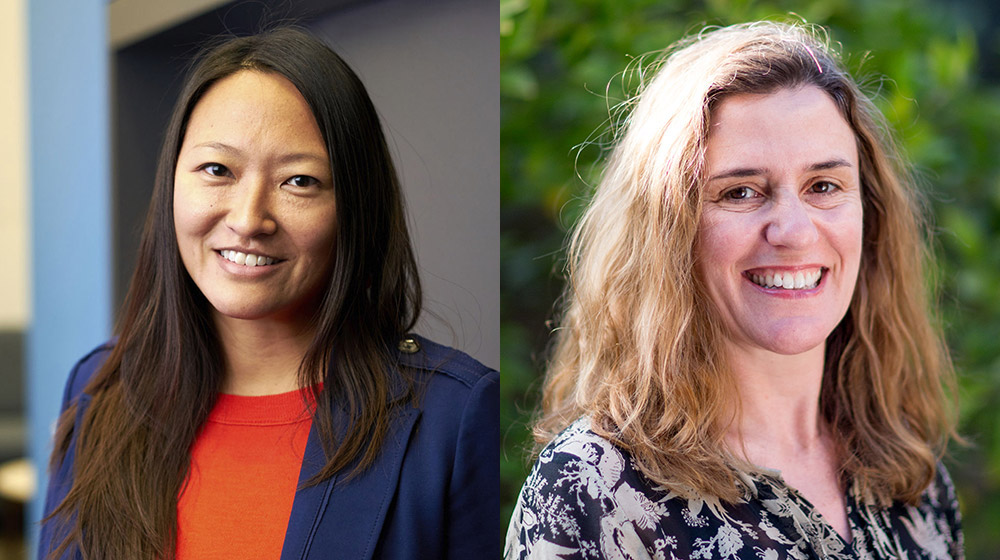
“[We want] to break the boundary between children and adult research programs to start looking at the family.” Marilu Gorno Tempini, MD, PhD (Pictured, at right)
In the first such study of its kind, UCSF behavioral neurologists will evaluate children from families carrying the genetic mutation for frontotemporal dementia (FTD) with the aim of mapping the biological arc of the rare disorder.
Funding from the UCSF Weill Trailblazer Award has given Marilu Gorno Tempini, MD, PhD, and Suzee Lee, MD, the chance to merge their expertise in neurodevelopment, dyslexia, and familial FTD to discover whether differences in cognition and brain structure are present in children whose families are affected by FTD. The goal is to understand whether risk for FTD later in life is associated with differences in neurodevelopment earlier in life.
Both scientists discussed how grateful they were to the Weills for the opportunity offered by the Weill Trailblazer Awards to do such cutting-edge research in neuroscience. They also credited the UCSF culture for creating a highly collaborative environment that gives rise to excellent patient care and world-renowned research.
“The idea of this project is to break the boundary between children and adult research programs and between psychiatry, neurology, and neuroscience, and start looking at the family,” said Dr. Gorno Tempini. “We think that by taking a lifespan approach and following families over time, we will begin to fully understand the disorders of old age.”
Between 50,000 and 60,000 Americans are afflicted with the neurodegenerative disease that slowly destroys the regions of the brain involving personality, language, and behavior. In people under 60, FTD is the most common cause of dementia that involves memory loss.
“FTD targets the networks in the brain involved with the parts that make us uniquely human,” explains Dr. Lee, who has studied FTD since arriving at UCSF in 2008 for a fellowship at the Memory and Aging Center (MAC). “It affects the ability to speak and the core personality of those stricken with the disease.”
UCSF is uniquely positioned to implement this groundbreaking research because few dementia centers in the world observe neurodevelopment in children. Equally important, MAC recruits the largest number of adult genetic FTD family members in the country and the research will leverage resources at both UCSF’s Dyslexia Center and MAC.
To launch the study, the scientists will recruit 50 children between the ages of 7 and 17 from families with FTD, 50 children without the mutation, and 42 children with neurodevelopmental disorders such as dyslexia or attention deficit hyperactivity disorder (ADHD). In her lab, Dr. Lee has found that pre-symptomatic genetic FTD carriers can have structural and functional brain changes in their 30s, a finding that reinforces research showing that signs of the underlying neuropathological processes could occur before the onset of symptoms.
The identification of a neurodevelopmental phase in FTD could help researchers understand how the brain reacts to specific genetic mutations during critical periods of growth and brain reorganization. It could also shed light on how late-life neurodegenerative disorders develop.
“This is a very prestigious grant,” says Dr. Gorno Tempini, “and I so appreciate the Weills for giving us the means to do this important research.”


